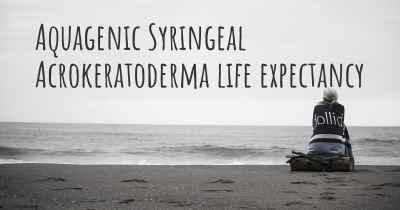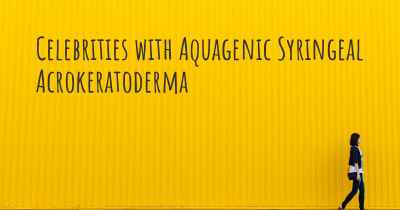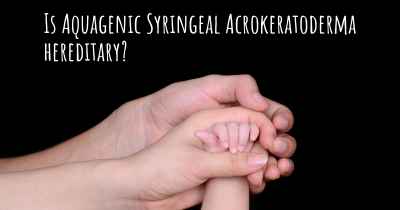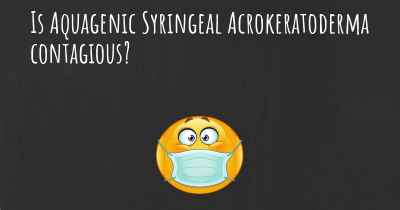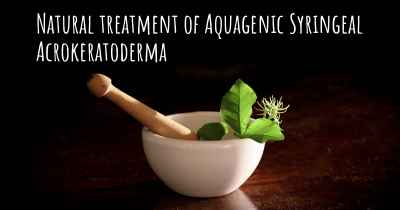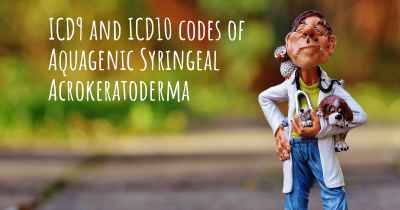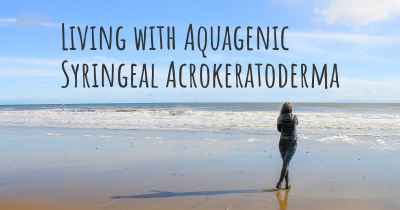Which advice would you give to someone who has just been diagnosed with Aquagenic Syringeal Acrokeratoderma?
See some advice from people with experience in Aquagenic Syringeal Acrokeratoderma to people who have just been diagnosed with Aquagenic Syringeal Acrokeratoderma

Advice for Someone Diagnosed with Aquagenic Syringeal Acrokeratoderma
Aquagenic syringeal acrokeratoderma (ASA) is a rare skin condition characterized by the development of white, wrinkled, or peeling skin on the palms and soles after exposure to water. If you have recently been diagnosed with ASA, it is natural to have concerns and questions about managing this condition. While there is no known cure for ASA, there are several strategies you can adopt to alleviate symptoms and improve your quality of life.
1. Understand the Condition
Take the time to educate yourself about ASA. Understanding the nature of the condition, its triggers, and its symptoms will empower you to make informed decisions regarding your skincare routine and lifestyle choices. Consult reputable medical sources, such as dermatology textbooks or trusted websites, to gather accurate information.
2. Moisturize Regularly
Moisturizing your skin is crucial in managing ASA. Use gentle, fragrance-free moisturizers that contain ingredients like ceramides, hyaluronic acid, or urea. Apply moisturizer immediately after patting your skin dry, preferably within three minutes of exposure to water. This will help lock in moisture and prevent excessive drying and cracking.
3. Avoid Prolonged Water Exposure
Limit your exposure to water as much as possible. While it may not be feasible to completely avoid water, try to minimize activities that involve prolonged contact, such as swimming or soaking in baths. When necessary, use lukewarm water instead of hot water, as hot water can exacerbate symptoms.
4. Protect Your Skin
Protecting your skin from irritants and harsh chemicals is essential. Wear gloves when handling cleaning products or engaging in activities that may irritate your skin. Choose mild, fragrance-free soaps and detergents that are gentle on your skin. Additionally, consider using a barrier cream or ointment to create a protective layer before water exposure.
5. Experiment with Treatment Options
While there is no universally effective treatment for ASA, some individuals have reported success with certain therapies. Talk to your dermatologist about potential treatment options, such as topical corticosteroids, antiperspirants, or antihistamines. These treatments may help alleviate symptoms or reduce the severity of your skin's reaction to water.
6. Seek Emotional Support
Living with a rare condition like ASA can be emotionally challenging. It is important to seek emotional support from friends, family, or support groups. Connecting with others who share similar experiences can provide a sense of belonging and understanding. Consider joining online communities or local support groups to share your journey and learn from others.
7. Communicate with Your Healthcare Provider
Regularly communicate with your healthcare provider to discuss any changes in your symptoms or concerns you may have. They can provide guidance, monitor your condition, and adjust your treatment plan if necessary. Keeping an open line of communication will ensure that you receive the best possible care and support.
Remember, while ASA may present challenges, it does not define you. Focus on self-care, maintain a positive mindset, and seek professional help when needed. With proper management and support, you can lead a fulfilling life despite the presence of this condition.
